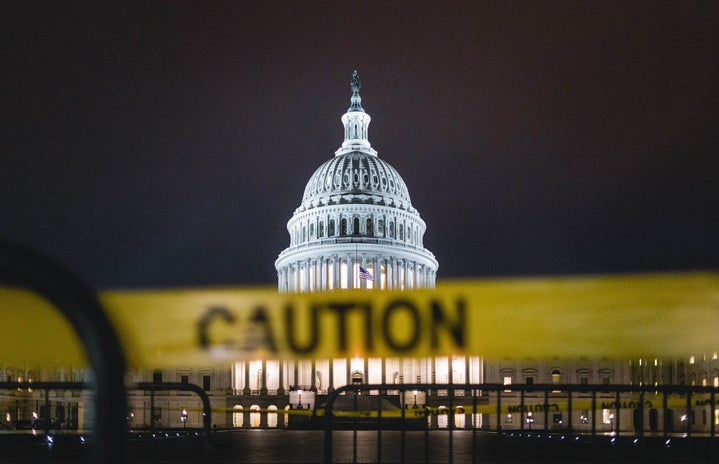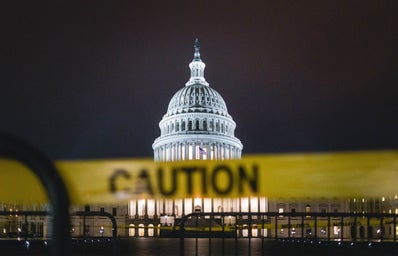When Therese Wilson’s father was imprisoned for his fifth DUI her freshman year, one thing was made clear: do not, under any circumstances, tell her fellow private school peers about his arrest.
“I always assumed everyone else’s fathers were drinking at home,” said Wilson, a rising graduate student pursuing her Master’s of Public Health at Columbia University. “I was one of the few kids with a scholarship, so we didn’t want to hurt my financial aid. And that feeling of knowing that my life was forever changed by his incarceration really impacted me; I realized, ‘this isn’t right.’”
After her father began his prison sentence in March 2014, Wilson realized that everything she had been taught about substance abuse was wrong. And that the solution required more than just placing users behind bars.

Drugs have been the top reason for arrest in the United States for the last decade, and the percentage of drug arrests for possession has risen from around 67 percent in 1989 to 86 percent in 2018. Though many arrests do not result in conviction, drug convictions of any kind can harm everything from employment to housing prospects- and these convictions continue to disproportionately harm African-Americans and Hispanics.
The racial foundations of former President Ronald Reagan’s “war on drugs” cannot be understated. John Ehrlichman, a top aide in the administration, later admitted that “the Nixon campaign in 1968, and the Nixon White House after that, had two enemies: the antiwar left and black people. You understand what I’m saying. We knew we couldn’t make it illegal to be either against the war or black, but by getting the public to associate the hippies with marijuana and blacks with heroin, and then criminalizing both heavily, we could disrupt those communities. We could arrest their leaders, raid their homes, break up their meetings, and vilify them night after night on the evening news. Did we know we were lying about the drugs? Of course we did.” To this day, Black Americans still fill modern prisons at astounding rates.
“Incarceration focuses on punishing the individual rather than trying to uplift a community of people,” says Wilson. “By looking at the root causes of a given issue, we can better understand and prevent substance abuse in the future.”
According to the 2019 scholarly article “Sharks and Minnows in the War on Drugs”, about 40 percent of drug possession arrests involve amounts a quarter of a gram or less- others were convicted for a hundredth and even a thousandth of a gram (for reference, a pack of Splenda sweetener weighs one gram). After declaring the war on drugs, the US reported the highest incarceration rates in the world, and is currently spending over $47 billion annually as overdoses rates rise.
Wilson and other public health officials have embraced a new approach known as the “upstream method,” a practice that addresses the root causes for different health issues. “It’s a human-centered approach of meeting people where they’re at,” Wilson explains. Instead of treating individuals on a case-by-case scenario or encouraging expensive rehabilitation, public health officials have begun looking at the foundations of a community as the solution to drug abuse. As an Injury and Violence Prevention intern at the American Public Health Association, Wilson works directly with communities to create stress-relieving structures for minors experiencing childhood trauma to prevent future substance abuse.
“We’re focused on building community structures…let’s say for example, you are someone who might use meth one day, and it’s because you have several ACEs [adverse childhood experiences] that have to do with household dysfunction. We want to make sure that you have positive childhood experiences to mitigate those ACEs, like free or subsidized after-school programs with kids your own age to alleviate stress and stay out of trouble.”
Many opposers of drug legalization argue that legalizing these substances will encourage users and non-users alike to abuse them. Wilson however, points to the recent successes of Portugal as a real-life example of legalization in action.

After decriminalizing the use of all illicit drugs in 2001, Portugal experienced dramatic increases in medical assistance treatment for opioid addicts as well as a drop in overdoses. Although one study found an increase in drug experimentation shortly after the shift, most experimentation did not lead to regular drug use.
“A lot of these counterarguments come from harmful stereotypes of substance users,” says Wilson. “There’s this idea that users are inactive when, in reality, substance use is not going to remove you from society. This approach of decriminalizing and using a public health perspective sees people as they are, which are valuable members of society at any point.”
After her father’s release, Wilson informs me that he soon got sober and regularly attends Alcoholics Anonymous meetings. Wilson now works with communities in the South Shore and Washington D.C. area and continues to invite substance users to the table during drug reformation.
“There’s a saying in public health,” she tells me. “Nothing about us without us.”



